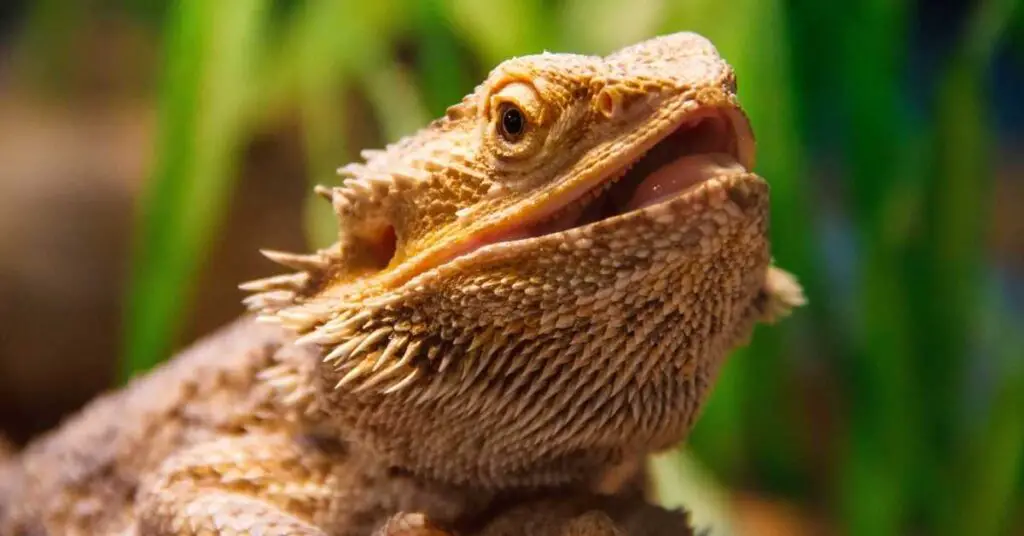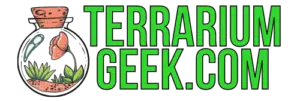Did you know that bearded dragons are omnivorous creatures and their diet consists of a variety of insects?
One question that often arises among bearded dragon owners is whether they can safely consume beetles.
Well, the answer is not as straightforward as you might think. While some beetles can be a nutritious addition to your dragon’s diet, others can pose potential dangers.
In this discussion, we will explore the different types of beetles that are safe for bearded dragons, the potential risks involved, and how to properly prepare beetles for your reptilian companion.
So, if you’re curious about whether or not your bearded dragon can munch on these little critters, stick around to find out more.
Key Takeaways
- Bearded dragons can benefit from the nutritional value of beetles, which are a good source of protein and essential vitamins and minerals.
- It is important to research and identify safe beetle species before feeding them to your bearded dragon, as not all beetles are safe and some may contain toxins or be difficult to digest.
- Feeding beetles to bearded dragons can have potential dangers, including toxic chemicals, choking or digestive hazards, and the transmission of parasites.
- Properly preparing beetles, such as sourcing them from sustainable beetle farming and washing and freezing them, ensures the health and well-being of your pet.
Nutritional Benefits of Beetles
Beetles offer a multitude of nutritional benefits that make them a valuable food source for bearded dragons. These insects provide essential nutrients that contribute to the overall health and well-being of reptiles.
When it comes to the benefits of insects for reptiles, beetles stand out due to their high nutritional value. Different species of beetles offer varying nutritional components, making them a diverse and beneficial food choice for bearded dragons.
One of the key benefits of including beetles in a bearded dragon’s diet is the high protein content they provide. Protein is crucial for reptiles as it supports growth, development, and overall body function. Beetles are rich in protein and can help meet the protein requirements of bearded dragons.
Furthermore, beetles are a good source of essential vitamins and minerals. They contain important vitamins such as vitamin A, which plays a vital role in maintaining healthy skin and vision. Additionally, beetles offer minerals like calcium and phosphorus, which are essential for bone health and proper muscle function.
Different species of beetles may also offer additional nutritional benefits. For example, some beetles are rich in fatty acids, which are important for energy production and maintaining healthy skin and scales in reptiles. Others may contain antioxidants that help boost the immune system of bearded dragons.

Types of Beetles Safe for Bearded Dragons
As you explore the diverse array of nutritional benefits that beetles offer for bearded dragons, it’s important to understand the types of beetles that are safe and suitable for their consumption. When it comes to feeding beetles to your pet, you need to ensure that you’re sourcing safe beetles that provide the necessary nutrients without posing any harm.
One type of beetle that’s safe for bearded dragons is the mealworm beetle. These beetles are rich in protein and fat, making them an excellent choice for your pet’s diet. They’re also easy to find and can be purchased from pet stores or online.
Another safe option is the dubia roach, which is a type of beetle that’s high in protein and low in fat. These beetles are commonly fed to reptiles and are an excellent source of nutrition for your bearded dragon. They can be purchased from reputable breeders or online suppliers.
It is important to note that not all beetles are safe for bearded dragons. Some beetles may contain toxins or be difficult for your pet to digest. It’s always recommended to do thorough research and consult with a veterinarian before introducing any new food into your pet’s diet.
Potential Dangers of Feeding Beetles
Feeding beetles to your bearded dragon can potentially pose dangers that should be carefully considered for the health and well-being of your pet. While some beetle species may seem harmless, it’s important to be aware of the potential risks associated with feeding beetles to your bearded dragon. Here are some potential dangers to keep in mind:
- Toxicity: Certain beetle species produce toxic chemicals as a defense mechanism. These toxins can be harmful or even fatal to your bearded dragon if ingested.
- Choking Hazard: Beetles, especially larger ones, may have hard exoskeletons that can be difficult for your bearded dragon to chew and digest. This can lead to choking or digestive issues.
- Parasites: Beetles can carry parasites, such as mites or worms, which can be transmitted to your bearded dragon during feeding. These parasites can cause health problems and discomfort for your pet.
- Allergic Reactions: Just like humans, bearded dragons can develop allergies to certain substances. Feeding beetles to your bearded dragon may trigger an allergic reaction, leading to symptoms like skin rashes, respiratory distress, or gastrointestinal issues.
It is crucial to research and identify beetle species that are safe for your bearded dragon before introducing them into their diet. Always consult with a reptile veterinarian to ensure your pet’s safety and well-being.
How to Prepare Beetles for Your Bearded Dragon
To ensure the safety and nutritional value of beetles for your bearded dragon, proper preparation techniques must be followed. Preparing insects for bearded dragons involves several important steps that guarantee the health and well-being of your pet.
One crucial aspect is sourcing beetles from sustainable beetle farming. This ensures that the insects are free from harmful chemicals and are raised in a controlled environment, providing a safe and nutritious food source for your bearded dragon.
When preparing beetles for your bearded dragon, it’s essential to remove any potential contaminants. Start by carefully washing the beetles with water to eliminate any dirt or debris.
Next, freeze the beetles for a few hours to ensure that any parasites or bacteria are eliminated. Freezing also helps break down the exoskeleton, making it easier for your bearded dragon to digest.
After freezing, it’s recommended to thaw the beetles before feeding them to your bearded dragon. This can be achieved by placing them in a container at room temperature until they’re fully defrosted. Thawed beetles are softer and more palatable for your pet, making it easier for them to consume and digest.
Recommended Feeding Schedule for Beetles
To ensure optimal nutrition for your bearded dragon, establishing a proper feeding schedule for beetles is essential after their careful preparation. Beetles can be a nutritious addition to your dragon’s diet, but it’s important to feed them in moderation and consider their size. Here is a recommended feeding schedule for beetles:
- Feeding frequency: Offer beetles to your bearded dragon two to three times a week. This frequency allows for variety in their diet while preventing overconsumption.
- Beetle size preference: Bearded dragons have different size preferences when it comes to beetles. It’s best to provide a range of sizes, from small to medium, to accommodate their individual preferences. Small beetles can be fed to hatchlings and juveniles, while larger beetles are suitable for adult dragons.
- Variety is key: Along with beetles, it’s important to provide a diverse diet for your bearded dragon. Incorporate other feeder insects like crickets, mealworms, and roaches to ensure a well-rounded nutritional intake.
- Monitor your dragon’s health: Keep a close eye on your bearded dragon’s weight and overall health. If you notice any signs of obesity or malnutrition, adjust the feeding schedule accordingly and consult a veterinarian if necessary.
Monitoring Your Bearded Dragon’s Reaction to Beetles
After introducing beetles into your bearded dragon’s diet, it’s crucial to carefully observe their reaction to ensure their health and well-being. Monitoring your bearded dragon’s behavior is essential in determining whether beetles are suitable for their digestive system health. Bearded dragons typically exhibit specific behaviors that indicate their reaction to new food items. By paying close attention to their behavior, you can assess if the introduction of beetles is causing any adverse effects.
When monitoring your bearded dragon’s behavior after feeding them beetles, observe any changes in appetite. A sudden decrease in appetite or refusal to eat may indicate an issue with the beetles or their impact on the digestive system. Additionally, monitor their bowel movements for any irregularities such as diarrhea or constipation, as these may signify digestive distress.
In addition to appetite and bowel movements, pay attention to their overall activity level and energy. If your bearded dragon becomes lethargic or displays unusual behavior, it could be a sign of discomfort or an adverse reaction to the beetles. Other signs to watch for include excessive scratching, swelling, or redness around the mouth or face.
Alternatives to Beetles in a Bearded Dragon’s Diet
After carefully monitoring your bearded dragon’s reaction to beetles, it may be necessary to explore alternative options for their diet. While beetles can provide essential nutrients for your reptile friend, it’s important to consider other food sources that can offer a well-rounded diet.
Incorporating a variety of fruits and vegetables into your bearded dragon’s meals can have numerous benefits for their overall health.
Here are some alternatives to beetles that you can consider:
- Leafy greens: Dark, leafy greens such as kale, collard greens, and mustard greens are excellent sources of vitamins and minerals. These greens can provide a good base for your bearded dragon’s diet.
- Fruits: Fruits like strawberries, blueberries, and apples can be offered as occasional treats. They’re rich in natural sugars and can provide additional vitamins and antioxidants.
- Squash: Butternut squash and zucchini are great options for adding variety to your bearded dragon’s meals. They’re low in oxalates and high in fiber, making them beneficial for digestion.
- Bell peppers: These colorful vegetables are packed with vitamin C and can be a great addition to your bearded dragon’s diet. They can be offered raw or lightly cooked.
Frequently Asked Questions
Can Bearded Dragons Eat Other Types of Insects Besides Beetles?
Yes, bearded dragons can eat other types of insects besides beetles. Some safe options include ants, crickets, and mealworms. These insects provide essential nutrients and are ideal for your bearded dragon’s diet.
How Often Should Bearded Dragons Be Fed Beetles?
Bearded dragons can eat other types of insects besides beetles. When considering how often to feed them beetles, it’s important to provide a balanced diet that includes a variety of insects and vegetables.
What Are the Signs That My Bearded Dragon Is Having a Negative Reaction to Beetles?
If your bearded dragon is having a negative reaction to beetles, there are several signs to look out for. These may include vomiting, diarrhea, lethargy, and loss of appetite. It is crucial to provide a balanced diet to ensure their well-being.
Are There Any Vegetables or Fruits That Can Be Fed Along With Beetles to Provide a Balanced Diet?
To provide a balanced diet for your bearded dragon, you can feed them a variety of vegetables and fruits alongside beetles. These options offer nutritional benefits and ensure your pet gets the necessary nutrients.
Can Bearded Dragons Eat Live Beetles or Should They Be Cooked Before Feeding?
Yes, bearded dragons can eat live beetles, but it is recommended to cook them before feeding. Cooking beetles for bearded dragons not only eliminates any potential parasites but also increases their nutritional value.
Conclusion
In conclusion, beetles can be a beneficial addition to a bearded dragon’s diet. They offer a variety of nutritional benefits and can be safely consumed by these reptiles. However, it’s important to be cautious and only feed your bearded dragon types of beetles that are known to be safe.
Additionally, proper preparation and monitoring of your dragon’s reaction to beetles is crucial. If beetles aren’t available, there are alternative food options that can provide similar nutritional value for your bearded dragon.


